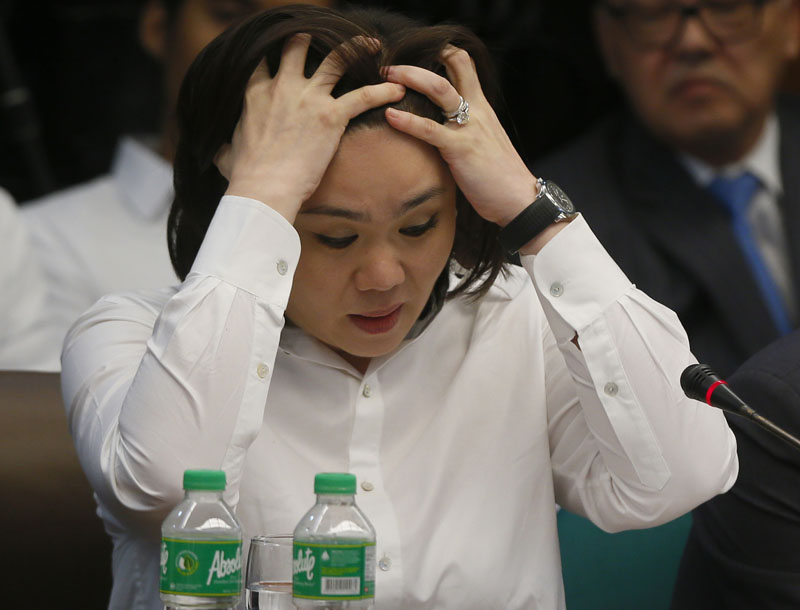Bangladesh bank chief quits amid $100 million hacking uproar
DHAKA: The head of Bangladesh's central bank resigned Tuesday after hackers managed to divert $101 million from the country's account with the Federal Reserve Bank in New York.
Bangladesh Bank Governor Atiur Rahman's resignation was accepted, said Prime Minister Sheikh Hasina's spokesman Ihsanul Karim.
Rahman, who held the bank's top post for seven years, told reporters he resigned voluntarily.
"I submitted my resignation to Prime Minister Sheikh Hasina ... tears rolled out from her two eyes," he said. Earlier he had said, "If my resignation is better for the Bangladesh Bank, I have no hesitation."
The finance minister canceled a scheduled news conference without explanation Tuesday afternoon. Last week he said Bangladesh was considering suing the US bank over the loss of the funds, which were thought to have been transferred to the Philippines and Sri Lanka.
However, the New York Fed said it found no evidence its own systems were compromised, and attention increasingly has focused on suspected vulnerabilities in Bangladesh Bank's cybersecurity.
Rahman, the son of a landless herdsman, was a Dhaka University economist before joining the Bangladesh Bank. He said leaving the bank post was a difficult decision.
"Such cyberattacks are happening across the world," Rahman said. "We have to be careful, very careful. It's like an earthquake, when it will come, very difficult to predict. We are new in facing such attacks. We lack experience."
Since the hacking scandal emerged earlier this month, Rahman said he had increased the bank's online security and hired international experts to oversee the work.
"After the incident I took some time and attempted to fix the loopholes so that the remaining amount is secure," he said.
In Manila, Philippines, a Senate committee opened an inquiry Tuesday into how about $81 million of Bangladesh's stolen funds were transmitted online to four private accounts at a branch of the Rizal Commercial Banking Corp., or RCBC, and who could be criminally liable.
Julia Bacay-Abad, executive director of the government's Anti-Money Laundering Council, told the committee that Bangladesh's central bank governor called to notify his Philippine counterpart on Feb. 11 about the transfer and requested that the funds be frozen.
An investigation by the anti-money laundering council showed the transfers occurred Feb. 5. Shortly afterward, a bulk of the money was moved to another RCBC account whose owner then sent the funds through a remittance company to two Philippine casino companies. The remittance company also made cash deliveries to a certain Weikang Xu.
The anti-money laundering council later moved to freeze the funds and filed criminal complaints against RCBC branch manager Maia Santos-Deguito and the supposed owner of the four RCBC accounts where the stolen Bangladesh funds were deposited, before the Department of Justice in Manila, Philippine justice officials said.
The council alleged that Deguito approved the opening of the four RCBC accounts on May 15 last year based on what appeared to be fake documents of the owners, who were later also able to withdraw some of the funds in one of the largest money-laundering scandals in the Philippines.
Deguito has denied any wrongdoing and offered to provide details during the Senate hearing in a closed-door executive session. RCBC's President and chief executive officer, Lorenzo Tan, said he was unaware of the alleged money laundering and refused to answer many questions, invoking bank secrecy, irritating committee chairman Sen. Teofisto Guingona III.
"This was stolen and a foreign government is asking us to help them," Guingona said, asking the RCBC officers why the funds were withdrawn up to Feb. 9 when the Bangladesh Bank already alerted RCBC and asked for a stop payment on February 8.
Guingona later told reporters it was clear there was a conspiracy but it was not clear at what level. He said it probably could not have happened if casinos were covered by the country's anti-money laundering law.
"The trail ends at the casinos, call it a black hole," he added.
Bangladesh Ambassador John Gomes, who observed the hearing, said he was satisfied with the investigation and that he would request he be allowed to also observe closed-door, executive sessions.
He said Bangladesh is working with the Philippines to recover the funds.
In Sri Lanka, police spokesman Ruwan Gunasekara said no police investigation was being conducted in the matter as of Tuesday. Officials at the Sri Lanka's Central Bank declined to comment.






